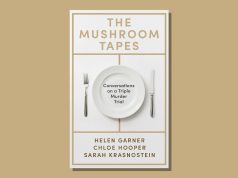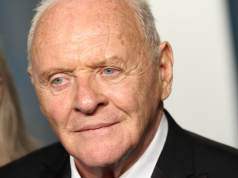
A small but growing number of pregnant women are choosing to give birth without any assistance from a midwife or doctor, trusting instead in influencers’ tales of the “euphoria” of a “free birth”.
A year-long investigation into the Free Birth Society by The Guardian has uncovered a multimillion-pound organisation that encourages pregnant women to give birth alone or only with a doula (a non-medical birth companion) – sometimes with dangerous or deadly results.
What is the Free Birth Society?
Founded by former doula Emilee Saldaya, the FBS promotes an “extreme” version of home birth that dispenses with all medical support, said The Guardian. Calling itself a “birth liberation movement”, it presents “free births” to expectant mothers as “returning something sacred that had been stolen from them”. It talks of the “violence” of modern obstetrics, “downplays” serious pregnancy complications and even advises expectant mothers to avoid all prenatal checks and care, including ultrasound scans, which it falsely claims can harm unborn babies.
Most women find out about the FBS through its popular podcast, its Instagram account or its YouTube channel (which has nearly 25 million views). A bestselling video course called “The Complete Guide to Freebirth”, co-created by Saldaya and fellow ex-doula Yolande Norris-Clarke, can be downloaded from the “slick” company website. Saldaya – who, like Norris-Clarke, is not a midwife and has no medical qualifications – has become the “apex influencer of the freebirth world”, appearing in glossy marketing materials “half-naked”, wearing a crown and “posing in a meadow”.
How common are free births?
Free births are not usual but “they are increasing across the UK”, according to the Nursing and Midwifery Council. Several NHS trusts were reporting it as a “growing trend” in 2023 and 2024, said The Health Services Journal, with “several” in their area each year.
No official figures are collected on free births but the percentage of UK home births (which includes free births) has increased from to 2.1% in 2016-19 to 2.5% in 2021 (the most recent available figures) – that’s about 17,400 births. Around 6% of queries received by the AIMS birth charity in 2023 were about free births, said The Health Services Journal – before then, it only “a handful a year”.
Amid multiple recent NHS maternity care scandals, interest in free births has risen as “women lose trust in professional maternity services”, Soo Downe, a midwife and professor at the University of Lancashire, told The Guardian. Some will already have experienced trauma or inadequate maternity care during a previous birth. The suspension of home birth services during the pandemic may also have encouraged some, determined to avoid giving birth in hospital, to opt for a free birth.
What do the medical professionals say?
During its investigation, The Guardian identified 48 cases of late-term stillbirths, neonatal deaths or other forms of “serious harm” involving births that appeared to be linked to the FBS. In 18 of those cases, evidence has emerged to show that “FBS played a significant role in the mother or birth attendant’s decision-making, leading to potentially avoidable tragedies”.
When free births go wrong, it is “impossible to say whether the outcome would have been different with medical support” but experts who reviewed the FBS material concluded that the content was “medically illiterate, misleading or dangerous”, said the paper in a follow-up report.
One of the factors that worries obstetric experts most about free births is the rejection of antenatal care. This can mean that “risk factors, such as twins and breech presentations (the baby presenting bottom first) aren’t detected beforehand”, said Hannah Dahlen, a professor of midwifery, on The Conversation. This can lead to unforeseen complications during the birth and, even if a doula is present, they “don’t have the training, regulation or medical equipment and skills needed to manage emergencies”.
A senior obstetrician told the BBC’s health correspondent she was “terrified” by the idea of women giving birth “in medically unsupervised environments” without a midwife. “I think it’s reversing back to the Middle Ages.”
But Saldaya is defiant in her defence of free birth. Following publication of The Guardian’s investigation, she posted a message to her 133,000 Instagram followers: “They will try to discredit you. They will lie about you. They will attempt to silence what they don’t understand.”
Influencers are encouraging pregnant women to give birth without midwife care – at potentially tragic cost






